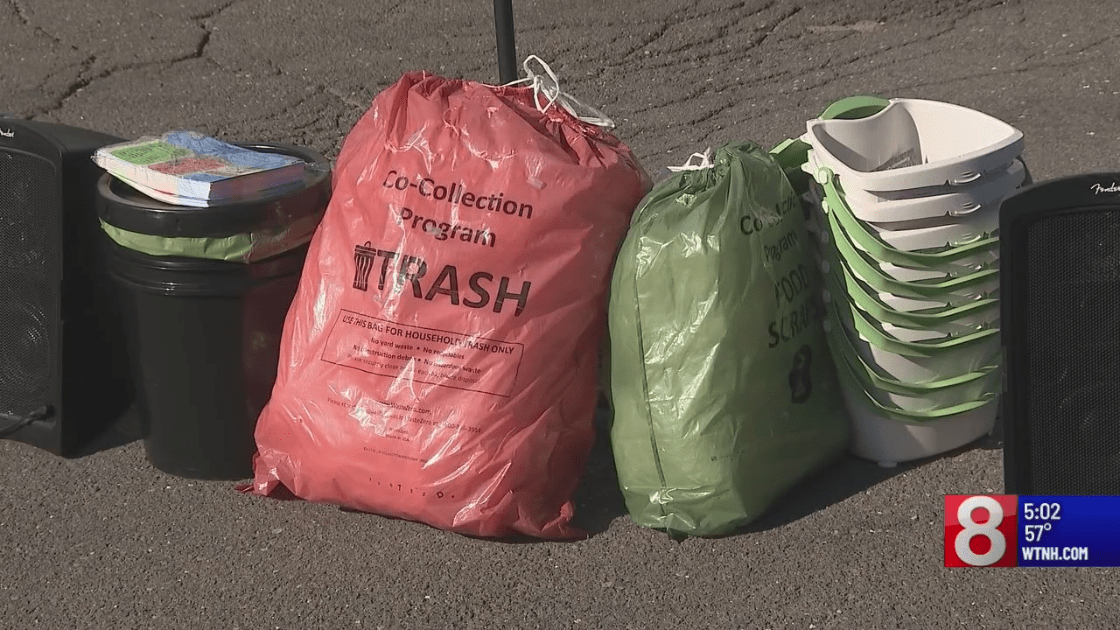
MIDDLETOWN, Conn. (WTNH) — The Save as You Throw initiative in Middletown will be the city’s new trash and food scrap program, starting on Friday.
The program requires residents to use the official City of Middletown waste bags: orange bags for trash and green bags for food scraps.
The trick is that the green food scrap bags are cheaper than the orange trash bags. Therefore, the less solid waste residents have, the less orange bags they’ll need.
“So the tip fees. The difference is $65 per ton for the food waste anaerobic digestion and 100 plus dollars per ton for the regular municipal waste disposal,” said Chris Holden, the Director of Public Works.
The city said residents should see their sanitation bills drop from about $400 to about $280 per year, on average with this program.
“What used to be one big bill that you paid is now going to be a smaller bill and then a small fee associated with the bags that you purchase to dispose of your trash,” said Middletown Mayor Ben Florsheim.
With this initiative, many residents said they are looking forward to lower long-term costs.
“If that actually is the case, it would be so exciting because everything is so expensive these days,” said Lindsey Eberle, a Middletown resident who co-owns the Spread Cheese Company.
She said she can see how food waste makes up more than 20 percent of solid waste weight.
“No doubt about that, it’s definitely got to be the heaviest,” Eberle said.
Save as You Throw first began as a pilot program earlier this year, but will now be implemented city-wide. Residents are also encouraged to separate out recyclables.
The initiative comes after the MIRA waste-to-energy plant closed last year, causing many officials to seek ways to reduce the number of solid waste disposal.
According to the Connecticut Department of Energy and Environmental Protection Commissioner Katie Dykes, the MIRA plant was processing up to one-third of the municipal solid waste across the state.
Now, the food waste that residents will put in green bags, will be brought to Quantum Biopower in Southington. The supplier will turn the food waste into methane and then produce electricity.
